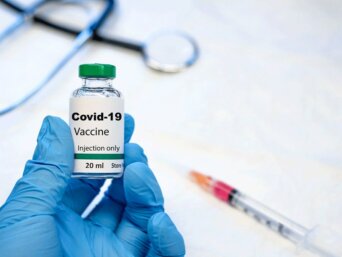- About
- Topics
- Picks
- Audio
- Story
- In-Depth
- Opinion
- News
- Donate
- Signup for our newsletterOur Editors' Best Picks.Send
Read, Debate: Engage.
| topic: | Health and Sanitation |
|---|---|
| located: | Serbia |
| editor: | Katarina Panić |
Serbian police arrested five people last Thursday in Belgrade under the suspicion that they have been running an anti-vaccination campaign.
They are accused of spreading fear by sharing conspiracy theories and misinformation on social media and in public appearances. The daily number of people who have been getting their first dose in Serbia in March had halved compared to February.
"They were not arrested because they are anti-vaxxers, but because they spread the fake news and panic via the internet," Goran Vesić, deputy mayor of Belgrade, told the media.
Among those brought in for questioning by the police was a sister of a former national basketball team player. There was a leader of a small far-right party, too: a psychiatrist who is considered a leader of the anti-vaccination movement in Serbia.
There was one person who had been vaccinated but never revealed themselves as such.
"Out of the five anti-vaxxers who were detained, one was vaccinated, and at the same time, he spread the most terrible possible lies against vaccination. It turns out you have protected yourself, but you say that others should not be vaccinated. That is the most terrible hypocrisy. They endanger national security," Prime Minister Ana Brnabić told the media.
Populist Serbian president Aleksandar Vučić received his first dose of the Chinese vaccine two days ago on live television. The country is among the leading nations in Europe when it comes to vaccine rollouts. It offers its citizens a choice between Pfizer, AstraZeneca, Sputnik V and Sinopharm. It also vaccinated some 25,000 foreigners for free, mostly from neighbouring countries.
Its national vaccine producer, Torlak, just signed the contract to start the production of Sputnik V by next month in Serbia. Still, it faces street protests, where many people carry a banner reading “Stop the COVID fascism.”
Last week, Google announced it would contribute 25 million Euros to launching the European Media and Information fund. Alongside Facebook and Twitter, the platform has often been accused of allowing misinformation related to the election and COVID-19 vaccine to circulate online.
The newly-formed fund aims to strengthen media literacy skills, support fact-checkers and research new ways to fight fake news online.
Image: Parco Healthcare.

